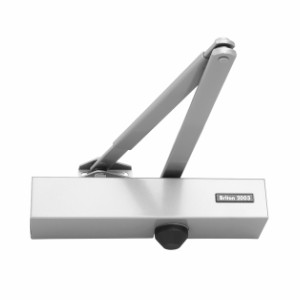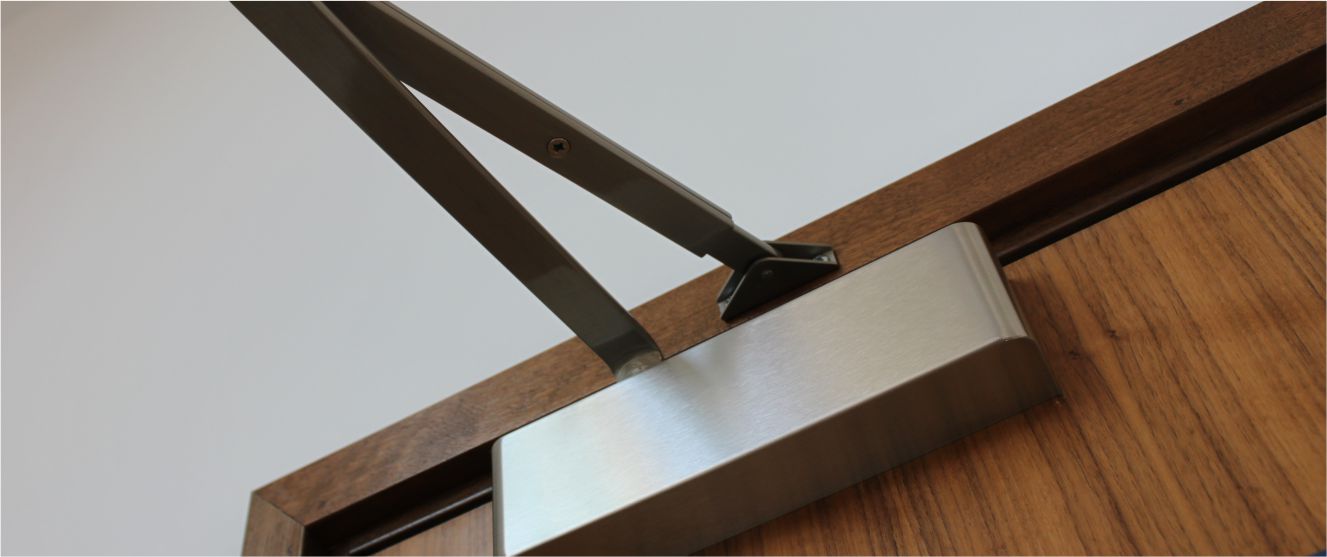How Do I Choose The Right Door Closer For My Door?

Door closers are an accessory that is often overlooked in terms of importance, and as it is an item usually sourced and installed at the end of a project when costs are needing to be kept down, a door closer can be relegated to the status of ‘just get something cheap’. However, that isn’t cost effective in terms of how you want the door closer to operate over a length of time, it could also result in you contravening fire regulations or insurance requirements.
So it is very important to give door closers the necessary amount of consideration, and this guide will help you understand the features and variables you need to think about.
Why do we need door closers?
Before we work out how to choose the right door closer, we need to first understand why we need them. This will help us in selecting a suitable design because we understand what we are needing it to do.
There are many reasons why we need door closers, and one or more of them can combine to reflect the needs of your commercial property. So these can include:
- Fire safety – regulations state that certain fire doors must be kept shut
- Controlled closing – to avoid noise, injury or damage to the door
- Security – some automated locking systems are only activated when the door is firmly in the ‘closed’ position
- Control airflow – for air conditioning systems and energy conservation
What different door closer designs are there?
The most common types of door closer fit into these categories:
- Surface-mounted rack and pinion design
- Spring-hinged design
- Automatic door closers – using an actuator switch
- Concealed door closers – where the door closer is hidden in the door jamb or the door itself for aesthetic reasons
What do I need to consider when choosing a door closer?
These are the important factors which will dictate what type of door closer is right for you. Once you have been through this list you can look at suitable designs and read the manufacturer specifications and recommendations to establish whether this particular door closer will suit your needs.
- What frequency of traffic is there? - The performance categories of door closers are often broken down into low, medium and high frequency traffic, with high being door closers in a school, hospital or a shopping centre and low being a small office with just a couple of people in it. How often the door closer will need to operate has a large bearing on what type you eventually opt for.
- What type of door is it? - Is it an in-swinging or out-swinging door? Some door closers are only suitable for one or the other in terms of their design, while some door closers will also be susceptible to rust and therefore are no good for external doors.
- What is the size and weight of the door? – If your door is heavy it will require a larger power size to ensure the door is correctly and firmly closed. There are variable power sizes to suit the size and weight of your door, and you should also note that fire doors require a minimum power size of EN3 to ensure it conforms with the EN1154 standard.
- Think about installation – If you are installing the door closer yourself, make sure it is a design you can fit correctly and that the physical constraints around the door itself allow you to do so.
- Is the door closer effective? - This sounds like a daft question but it’s extremely relevant. Is the design suitable for the size/weight or maybe the wind conditions around the door? Can it keep the door closed against wind and air pressure? For a door closer to be effective it is required to close the door, but also keep it closed.
- Is it a fire door? - If the door you need a closer for is a fire door then you need to check that the design is suitable for fire doors. This will also be a stipulation of your insurance. Door closers for fire doors must be a minimum standard and be CE marked, and you should be able to establish these details from the manufacturer’s specifications.
- Do I need controlled closing/opening? – This is also called ‘backcheck’ and is the mechanism of the door closer slowing or controlling the speed of the door opening and closing. This prevents the door being flung open or closed violently by a person, or by the wind, and therefore can prevent noise, injury and damage. Some door closers incorporate this feature, but some don’t.
- Can I adjust the speed? – You may need to adjust the way your door closer operates to enable people to travel through. This is useful in healthcare settings where wheelchairs and beds may need to travel through the door, or where people are walking slowly, and also in other settings where people are often carrying large loads through a door. Again, you can check whether a door closer allows you this function.
Now you can make a list of the requirements you need from a door closer and match these to the most suitable design.